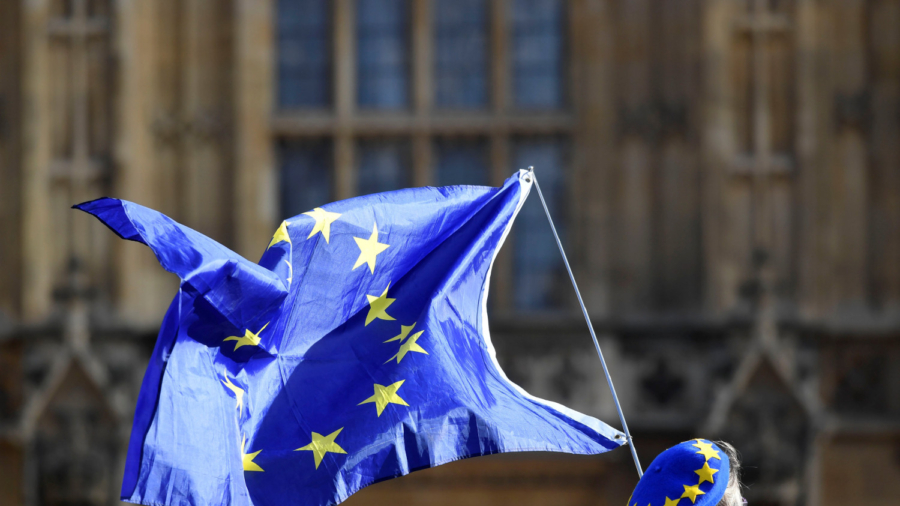The European Court of Justice has taken on a case that will settle the question of whether the UK can back out of Brexit without consent from the EU.
The announcement bolsters a campaign for lawmakers to be given the option to overturn Brexit when they vote on any deal brokered between the EU and the UK.
The UK and EU are coming to the end of an interim period, separated but still married as they hash out the divorce agreement before a deadline of March 29, 2019.
The EU membership treaty is clear that Brexit can be stopped at any point before that date as long as all 27 member states, and the UK, agree. However, it isn’t clear whether the UK can decide on its own that it no longer wants to leave.
That question will now be answered, after Scottish lawmakers, opposed to Brexit, filed a petition in the Scottish court, triggering a request to the European Court of Justice (ECJ) on Sept. 21.

On Oct 3, the ECJ confirmed it had accepted the request for a preliminary ruling.
Take It or Leave It
Theresa May’s government has insisted all along that there would be no going back from Brexit, and political winds have yet to get behind a steadily growing movement pushing for a second referendum.
May has offered lawmakers only the binary option of accepting or rejecting any arranged deal negotiated with the EU when they vote on Jan. 21—in crude terms, the choice of a “hard” or “soft” Brexit.
But the plaintiffs in the legal appeal are demanding a third option for lawmakers: to be able to pull out of Brexit altogether. They said advanced legal clarification on whether the UK can do so unilaterally is vital to the vote.
The UK doesn’t just have standard membership with the EU, but has over the years negotiated various arranged benefits and opt-outs of the standard treaty deal, including keeping its own currency and a handsome rebate. If the UK wished to remain a member, EU states might decide it needed to start over with the standard package.
“If we can revoke the notification without permission we will retain the rebate and opt outs we presently enjoy,” said the Good Law Centre, one of the parties behind the case, in a statement. “It can be, legally, like the decision to Brexit was just a bad dream.”
” If we have to go cap in hand to the other 27 for permission we are at risk that a country that will benefit from transfers of financial services or manufacturing will block our path to remain.”
Neither of the main political parties has put reversing Brexit on the table. Polls show support of remaining in the EU a few points ahead of Brexit, and that public appetite for a second referendum is evenly split.

Given the stance of the UK government, the case was initially rejected by the Scottish court for being “hypothetical and academic,” but got through on appeal.
Legal Opinions Split
Steve Peers, a professor of EU law at the University of Essex said that legal opinion is evenly split as to which way the European court ruling will go.
Even the ECJ agrees that though the UK can unilaterally revoke Brexit, it would still prompt constitutional questions in the UK, he said.
“It would be a green light as far as the EU side was concerned. But there would still be a question of how exactly that would work if the [UK] government want to do it. Would there have to be another act of Parliament, for instance?”
Then there’s the politics. “Do you have a referendum first? Is there enough time for that? Or do you delay the article 50 date? Or do you have an election, first?”
With EU member states able to present evidence to the court, the ruling could be influenced a little by the political mood music within the EU, said Peers.
But he notes that it isn’t clear what might be in the EU’s interests. For example, allowing the UK to independently change its mind could be seen as dismantling the EU system. On the other hand, if the UK ends up staying in, that would also be a victory for the unity of the EU.
The ECJ is pushing this case through faster than usual, confirmed Peers. A decision is expected before Christmas, in time for lawmakers to vote.
Many prominent EU leaders have said all along that they would accept Britain changing its mind on Brexit.
From The Epoch Times


